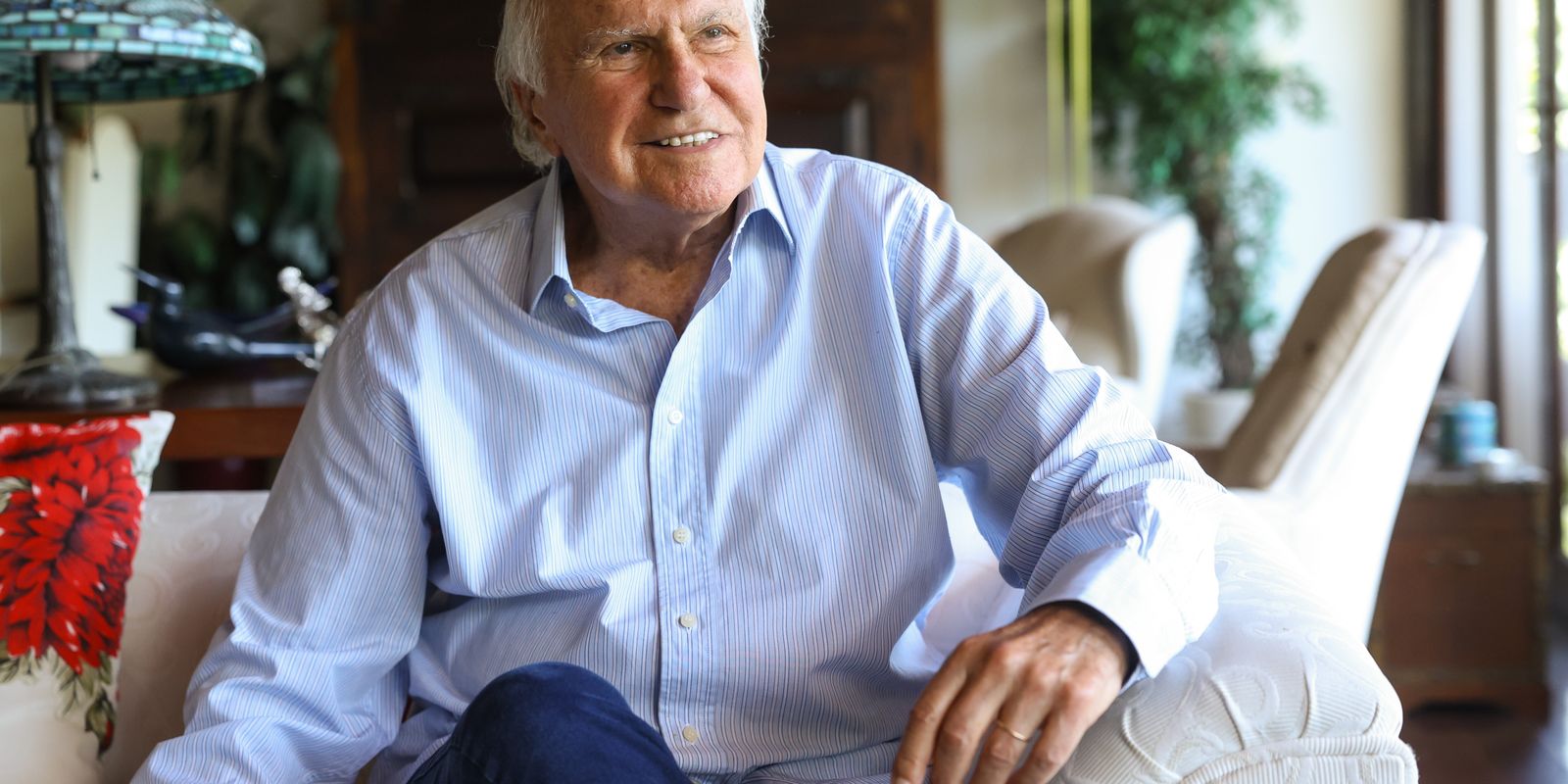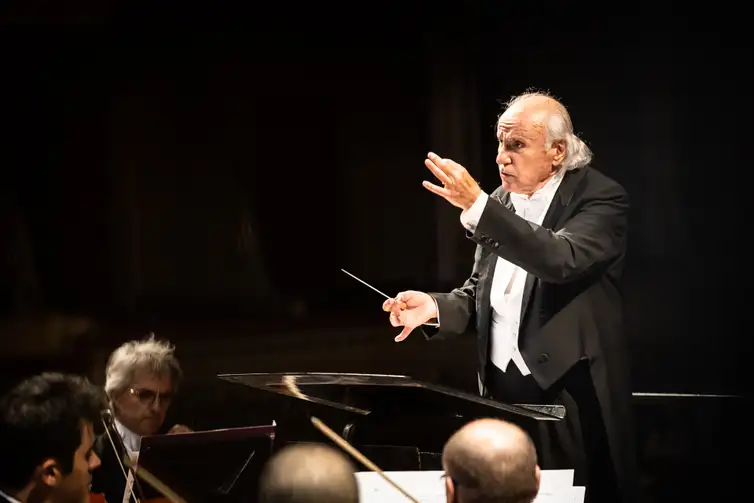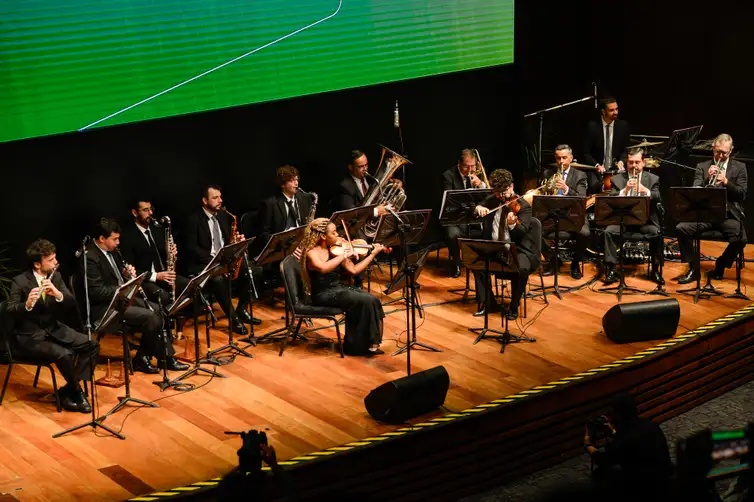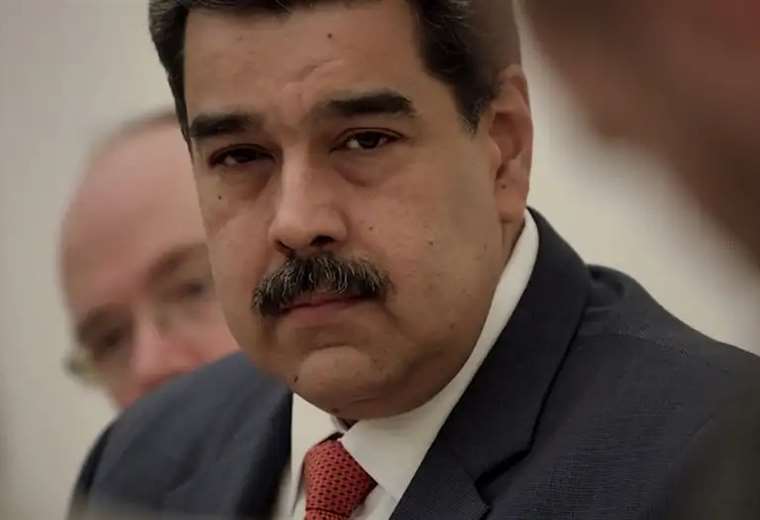The Petrobras Symphony Orchestra has, this Friday (27th), at 7pm, a special performance. It will celebrate at Cinelândia, in front of the Theatro Municipal do Rio de Janeiro, in the city center, the 90th birthday of its artistic director and main conductor Isaac Karabtchevsky. At the concert organized in partnership by Petrobras Sinfônica, the Social Service of Commerce (Sesc RJ) and Theatro Municipal, one of the most striking characteristics of the maestro’s career will be back: the popularization of classical music.
For decades it was common to see him leading orchestras in concerts that brought together large numbers of people in public spaces, such as squares and parks, interacting with classical music. “This is something completely inexplicable. It belongs to human beings when they get excited, get excited. This is a basic concept. Music has this magical power. It exerts a function on human beings that is almost emanent from their sensory formation. Through our nervous system, the notes multiply and take over us completely. It’s an association you have to make when listening to music. Not consciously, it’s human beings to listen to music and be moved by it”, said Isaac Karabtchevsky in an interview with Brazil Agency.
The desire to popularize music, according to the maestro, was born when he went to theaters, saw the public excited by music and thought that these spaces only had around 2 thousand seats. “I thought: there are so few people for such great art and even though I was still young, almost a child, I was already in my teens, an impulse came to me that we needed to do something so that a greater number of audiences could enjoy such beautiful moments”, he stated.
An example of a presentation with a large audience occurred in 1986, at the Aquarius Project, created in 1972 by the maestro, the journalist Roberto Marinho and the promotions manager of the O Globo newspaperPéricles de Barros. The intention was to bring classical music to as many people as possible. The staging of the opera Aidaby Verdi, took around 200 thousand people to Quinta da Boa Vista, in the north of Rio. The cast had 470 artists and the concert lasted more than two hours. There the public sat on the lawn and occupied the waters of the local lake.
For the maestro, the positive reaction of the audience who, in many cases, were attending a concert for the first time is almost a religious ritual where people move, give thanks and become enthusiastic about singing. “They are closely linked. The origin of human beings has always been through groups that, in times past, met as congregations or brotherhoods that sang around the fire. I think music permeated the lives of past civilizations as strongly as it does today,” he said.
Initiation
Interest in music arose early in the maestro’s life, recognized as one of the most relevant today. “I realized that the first impulse had been there for a long time, since my mother breastfed me and I had heard her sing. So, it was an instinctive, natural, organic thing. She came with her first love, her first affection from my mother, who sang the lullabies in Russian. The link of communication between the spiritual matter that is music certainly came with my mother and from there it was a continuous crescendo”, he said.
As a child, under the guidance of her mother who had been a mezzo soprano singer in Kiev, Ukraine, she started taking singing lessons with her Australian teacher and then came the instruments. “My mother was fundamental in this process, because she saw a natural talent, that my gesture was always symptomatic with the musical content. She sensed this and immediately put me in touch with her singing teacher here in Brazil, in São Paulo, who was called Fan Krause, an Austrian who immigrated to Brazil and gave singing lessons and continued rehearsing with her. I watched all the rehearsals and he started to prepare me for my future career. I exercised, sang a lot, it was my first vocation, my first entry into the musical universe was through singing. I owe a lot, firstly to my mother and, secondly, to the teacher who introduced me to the secrets of music”, he reported.
The singing study was always with classical music, generally Tchaikovsky, and excerpts from operas. “That lasted more or less until I was 12 years old, when she made me study music more seriously. Then I had a theory and solfeggio teacher, nothing in relation to conducting yet, but this was the first phase that crystallized and solidified my musical career. These were the first steps, which are always tortuous, until I reached a point where I could walk freely.
The first instrument was the piano and later it developed into others. “The oboe was a natural result of that. Why a wind instrument? Because it was an instrument that sang, so I chose a wind instrument, the oboe, which had a pastoral, intimate, beautiful sound. To this day, when I remember the phrases emitted by the oboe, it is a feeling of completeness”, he described.
Karabtchevsky felt that he could be a conductor when he realized, in his development, that music is related to gesture. “The hands represent a sensorial plane in the dimension of space that the music proposes. Music is an art that spreads over time, but the concept of gestures is completely spatial. He seeks to represent the music, the tonalities, the inflections that have a musical phrasing. When you speak, for example, I am talking to you and I am making unconscious gestures, because the gesture denotes similarity with musical phrasing and conducting. As I gestured a lot when singing, that’s where the first sketches of what the future conductor would be came from,” he revealed.
His brilliant career has highlights both inside and outside the country. He was principal conductor of orchestras in Vienna and Venice, where he began his foray into opera. “As I was doing opera for the first time, because I had never had this opportunity here in Brazil, it really was a discovery. I was there in front of the orchestra performing my first operas that I love so much by Mozart, Verdi, Puccini, those composers who always surrounded me but I never dominated them”. In 2009, Karabtchevsky was included among Brazil’s living icons by the British newspaper The Guardian.
The conductor does not distinguish between a notable concert, but highlighted that every start of the season has a different energy. “Certainly, the beginnings of seasons are always like floodgates. Some dammed waters, the moment they are opened, descend with enormous violence into a dam. So, I watch the opening concerts of the season. The power of these waters is reflected throughout the season. That’s a cool thing. All the first concertos are the most formidable in this lyrical aspect. Dams that were opened. It has that meaning.”
“Audiences always react based on the best concepts. Not that they know that. It’s an emanent thing, but the Rio public, especially here in Rio de Janeiro, has given evidence that gauges the musician’s willingness to give their best. It’s an unconscious thing. When the musician projects his ideal of precision, tuning and musicality to the audience, people realize it.
OPS
For the maestro, it is a privilege to be leading the Petrobras Symphony Orchestra at his 90th birthday this Friday. “It’s my mainstay and the way I have to communicate with humans, through a perfect instrument. It is a group of musicians that goes beyond the size of a simple orchestra. She is family. I consider the Petrobras Symphony Orchestra part of my family. They fit into this human context of giving and receiving. This is permanent, it’s daily”, he mentioned.
In his view, the rehearsal is always a gift. “It’s a superior form of communication. I rejoice in that.”
The CEO of the Petrobras Sinfônica Orchestra, Carlos Mendes, said that the maestro is a great icon of Brazilian culture and concert music, who has always done a wonderful job of popularizing it. “Our orchestra has been around for about ten, 12 years, with a bias towards this. We really decided to bring this audience that doesn’t frequent concert halls closer to us, with all of our projects, not only in popular music, but also in concert music aimed at those who aren’t very used to going to concert halls”, told Brazil Agency.
“Our relationship with the maestro is always a lot of exchange, always very intense. The maestro is an incredible, pleasant person, from a unique culture. We always have to be grateful”, he celebrated.
The organizers informed that if it is raining at the time scheduled for the performance, the concert will be transferred to the following day (28), at the same time. The evening’s repertoire will begin with Radetzky March by Johann Strauss, followed by Boleroby Maurice Ravel. Also included in the list The Hungarian Dance nº 5by Johannes Brahms; Blue Danubeby Johann Strauss Jr. Toccata – Little Caipira Train, from the work Bachianas Brasileiras nº 2 by the greatest Brazilian composer, Heitor Villa-Lobos. The closing will be with the Waltz of the Flowers, of The Nutcracker, and the Opening 1812both by Tchaikovsky.

















